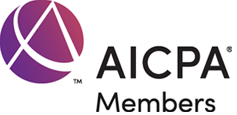|
News Tuesday, August 04 2015
Congress passed a revision to the Affordable Care Act regarding “Applicable Large Employers” (ALEs) who are required to either provide coverage or make shared responsibility payments for their employees. ALEs are defined as employers who employ an average equivalent of 50 fulltime employees in a year, along with several other rules and exceptions. This change states that employers do not have to count an individual in the 50 full time employees if that person is otherwise covered by TRICARE or VA.
This change is retroactive and may be applied to any tax year beginning January 1, 2014 or later. Tuesday, August 04 2015
As many people know, property received from another upon his or her death receives a stepped-up basis to the fair market value of the property at the time of that person’s death. The purpose of this rule is to avoid the recognition of gain when receiving an inheritance. Conversely, when preparing an estate tax return, it is beneficial to value assets as low as possible to reduce any tax. To prevent the same assets from being valued at different amounts for different purposes, Congress has passed a law requiring that the fair market value used for the stepped-up basis be the same value used on the return for estate tax purposes. This imposes new reporting requirements on executors of large estates to disclose in statements to the IRS and in the identifying beneficiary information the assigned value of each item received.
Any underpayment in tax under this new law is subject to a 20% penalty. These provisions are effective for estate tax returns filed after July 31, 2015. Tuesday, August 04 2015
Congress recently passed a new law overruling a Supreme Court decision and extending the normal 3-year statute of limitations to 6-years for underreporting basis in assets. If basis is undervalued and results in an omission of tax that 25% or more of gross income, the IRS can now consider such items going back 6 years. Accuracy related penalties and interest are also likely to be added to the additional tax amounts.
The 6-year rule has always applied to 25% or more omissions, but not when the omission was a result of overvalued basis. Be sure to report the proper basis of your assets when determining you amount of gain/loss. Tuesday, August 04 2015
Congress passed a new law requiring mortgage companies to report additional information to the IRS. The new information includes the address of the mortgaged property, the outstanding principal amount of the loan, and the loan origination date. These changes are effective for statements pertaining to the 2016 tax year, meaning that they are effective for returns filed in March/April 2017. Mortgage statements received in 2016 for the 2015 tax year are not subject to the new reporting requirements. Tuesday, August 04 2015
Congress has issued a new law changing the due dates of many returns. Individual income tax returns remain due on April 15 and S-Corp returns remain due on March 15. However, if you file a partnership or C-corporate return, these due dates have changed. Partnership returns will now be due on March 15, a month earlier than before, and C-corporate returns will now be due on April 15, a month later than before. Congress hopes that the earlier due date for partnerships will prevent many taxpayers from having to file for extensions while waiting on K-1s. Also, the June 30 deadline for filing a FBAR (declaring foreign bank accounts) will be moved up to April 15 to coincide with the individual’s income tax return. These changes are effective for returns pertaining to the 2016 tax year, meaning that they are effective for returns filed in March/April 2017. |
 |

